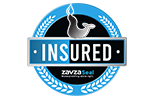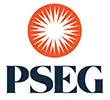As the effects of climate change intensify, homeowners in New York’s boroughs—Long Island, Brooklyn, Queens, and the Bronx—are feeling the pressure more than ever. Rising temperatures, unpredictable weather patterns, frequent flooding, and more severe storms are not just global phenomena; they are right at our doorstep. For over two decades, Zavza Seal has been helping residents prepare for and withstand the environmental shifts brought on by climate change. In this blog, we explore the impacts of climate change in our region and how you can take proactive steps to safeguard your property.
Understanding Climate Change in Our Backyard
Climate change is not a distant threat. It is a present-day reality affecting how we live, work, and protect our homes. New York, especially coastal and low-lying areas, is already seeing the consequences:
- Increased Flooding: Long Island and parts of Brooklyn and Queens are particularly vulnerable due to their proximity to the Atlantic Ocean. Rising sea levels and more intense rainfall events lead to frequent basement flooding and water damage.
- Heat Waves: The Bronx and Queens often experience urban heat island effects, which make extreme heat even more dangerous for older homes not equipped with modern insulation or ventilation systems.
- Stronger Storms: Superstorms like Sandy are now considered part of a “new normal,” with high winds, heavy rainfall, and extended power outages becoming more common.
- Rising Humidity and Mold Growth: Prolonged periods of high humidity create perfect conditions for mold, which can affect both health and structural integrity.
Effects of Climate Change on Properties in NYC Boroughs
Long Island:
Homes on Long Island face increasing flood risks, especially in South Shore areas. Saltwater intrusion, higher water tables, and storm surges can erode foundations, destroy basements, and promote rapid mold growth.
Brooklyn:
Brooklyn neighborhoods with older infrastructure are particularly susceptible to stormwater overflow and sewer backups. Waterproofing becomes essential to protect aging basements and foundations.
Queens:
Queens homes often face both flood and heat challenges. Homes near Flushing Meadows and Jamaica Bay are at greater risk of flooding, while inland areas struggle with extreme heat and humidity, affecting roofing systems and insulation.
The Bronx:
The Bronx, while higher in elevation, is not immune to flooding, especially in areas near the Harlem River and East River. Heat waves are more frequent, requiring better ventilation, insulation, and moisture control to prevent damage.
How to Protect Your Home Against Climate Change Effects
1. Basement Waterproofing
One of the most vulnerable areas in a home is the basement. Water intrusion can lead to mold, mildew, and structural issues. Waterproofing includes interior and exterior drainage systems, sump pump installations, and vapor barriers to keep water out and your basement dry.
2. Foundation Sealing and Crack Repair
Climate-related stress can cause foundations to crack or shift. Sealing these cracks with professional-grade materials prevents water seepage and preserves the structural integrity of your home.
3. Roof Inspection and Waterproofing
Heavy rains and intense sun exposure can wear down roofing materials. Regular roof inspections and waterproof coatings help extend the lifespan of your roof and prevent leaks.
4. Sound and Thermal Insulation
Insulating your home isn’t just about staying warm; it helps regulate temperature during heat waves and keeps your home energy efficient. Rockwool and spray foam insulation are excellent options.
5. Proper Drainage Systems
Installing or upgrading gutters, downspouts, and French drains ensures water is directed away from your property, reducing the risk of flooding and erosion.
6. Crawl Space Encapsulation
Moisture and humidity can enter through crawl spaces, causing mold and weakening wooden beams. Encapsulation protects your crawl space with vapor barriers and dehumidifiers.
7. Mold Remediation and Prevention
Mold thrives in warm, damp conditions. If your home has experienced flooding or high humidity, mold could be lurking behind walls or under floors. Professional remediation stops it from spreading and damaging your home.
8. Air Sealing and Ventilation
Proper ventilation prevents moisture buildup and keeps air quality high. Air sealing also helps reduce energy costs and maintain consistent indoor temperatures.
Proactive Maintenance Tips for Homeowners
- Schedule Regular Inspections: Catch potential problems early with annual foundation, roof, and moisture inspections.
- Check for Visible Signs: Watch for cracks in walls, musty odors, damp spots, or peeling paint.
- Upgrade Old Systems: Replace outdated sump pumps, insulation, and HVAC units with more efficient, climate-resistant versions.
- Maintain Landscaping: Proper grading and drainage help direct water away from your foundation.
- Emergency Preparedness: Keep a home emergency kit ready for flooding or power outages. Include backup batteries, pumps, and water alarms.
Zavza Seal: Your Partner in Climate Resilience
For over 20 years, Zavza Seal has helped property owners in Long Island, Brooklyn, Queens, and the Bronx prepare for the unexpected. Our expert teams understand the unique challenges each borough faces and offer customized solutions that ensure your home is safe, dry, and climate-resilient.
Whether you’re dealing with a leaky basement, need mold remediation, or want to improve your insulation, we’re here to help.
Services We Offer:
- Waterproofing (Basement, Foundation, Roof)
- Crawl Space Encapsulation
- Mold Remediation
- Air Sealing & Insulation
- Drainage System Installation
Final Thoughts
Climate change is here, but that doesn’t mean your home has to suffer the consequences. With smart, proactive maintenance and professional help from Zavza Seal, you can protect your most valuable investment for years to come.
Contact us today for a free consultation and find out how we can help your home stand strong against a changing climate.
📍 Serving Long Island, Brooklyn, Queens, and the Bronx
Stay safe. Stay dry. Stay protected—with Zavza Seal.








